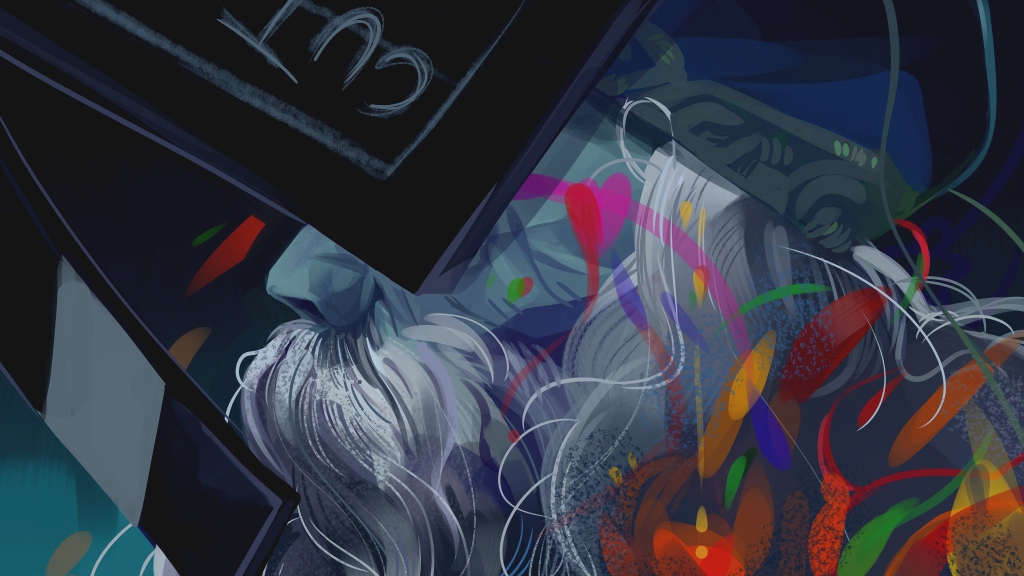Dumbledore Deserves to be 'Explicitly Gay'
by Marisa Kay Langlois | published Mar. 31st, 2018
Since the publication of "Harry Potter and the Sorcerer's Stone" in 1998, the Harry Potter franchise has become a veritable phenomenon. It has produced seven books, eight movies, a theme park, a stage play and most recently, the spin-off film series "Fantastic Beasts and Where to Find Them." Countless fans have been touched and inspired by the magical world of the Harry Potter universe.
J. K. Rowling, the author of the original Harry Potter books, has always been very open with fans about her thoughts and feelings about her novels. At times, she has even gone so far as to apologize to readers for killing off certain characters. She has revealed several details about her vision of the world of Harry Potter that didn’t make it into the books or movies. One of these was thatAlbus Dumbledore, the headmaster of Hogwarts School of Witchcraft and Wizardry, was gay. The response to this revelation was mixed.
However, this speculation was proven incorrect this past January when director David Yates told Entertainment Weekly that Dumbledore would “not explicitly” be gay in the upcoming Fantastic Beasts movie, "The Crimes of Grindelwald." “But I think all the fans are aware of [Dumbledore’s sexuality],” Yates went on to say.
Creatively, the choice to ignore or hide Dumbledore’s sexuality makes no sense. According to Rowling, Dumbledore had once been in love with Gellert Grindelwald, the dark wizard who serves as the antagonist in the Fantastic Beasts series.
A film that includes Dumbledore's attraction to Grindelwald could explore a variety of themes — for example, how love can blind us even to truly horrible things, how we can still find ourselves attracted to those we love even when they let us down, and how standing up to the people we love is far more difficult than standing up to the people we hate. Why would any filmmaker leave this detail out?
The answer comes down to the myth that diversity hurts ticket sales. Given that racially diverse films tend to do significantly better at the box office, one would assume that film studios would be pushing for all kinds of diversity in their films. However, studios remain unwilling to risk alienating the tiny homophobic sliver of their audience that would still be uncomfortable seeing a movie featuring a gay character. Of course film executives need to consider their bottom line, but they should focus on actual box office statistics rather than relying on myths and stereotypes.
Furthermore, films, literature and all forms of pop culture have some amount of social responsibility to their audience. For content as deeply embedded in our culture as Harry Potter, that social responsibility is even greater. Part of that responsibility includes representing a diverse range of characters. Hollywood is still continually failing in that respect: according to GLAAD’s report on LGBTQ representation in film, only 23 of the 125 major films released in 2016 contained any lesbian, gay, bisexual, transgender or queer characters.
The media we consume shapes our view of the people and the world around us — when marginalized groups aren’t fairly represented, society treats them like stereotypes or as though they don’t even exist. Furthermore, it is psychologically important to see characters similar to yourself in media. More than half of LGBT teenagers report feeling unsafe at school and nearly one-third attempt suicide — imagine what it would mean for an LGBT teenager to see a movie where Dumbledore, a beloved and heroic character, is explicitly gay.
So when Yates says, “But I think all the fans are aware of [Dumbledore’s sexuality],” he is trying to have his representation cake and eat it too. That is, he wants to be seen as progressive and as an ally to the LGBTQ community without actually taking any risks or putting profits on the line. The same can be said for Rowling, who felt comfortable revealing Dumbledore’s sexuality only after all seven Harry Potter novels had been released to resounding success.
Diverse media representation is hugely important, but we’ll never get it unless people in the industries that create our media are willing to stick their necks out to do what’s right. We deserve more from Hollywood than constant devotion to myths about diversity’s effect on profit margins. We deserve a Dumbledore who is explicitly gay.



